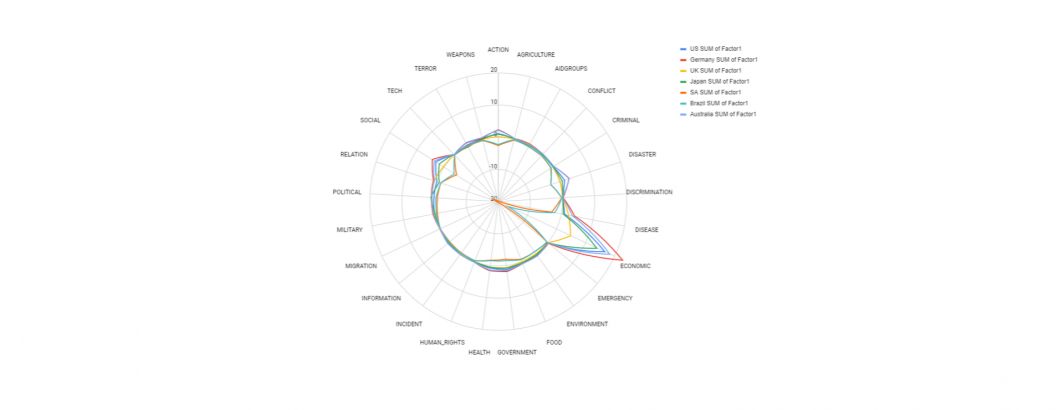
Earlier this month we reported that media coverage and search interest in inflation were decreasing, suggesting suggesting a public that had either accepted steady price increases or agreed with the White House's admonishments that inflation was only temporary. A week later, the Federal Reserve Bank of New York published the results of its latest inflation expectation survey, showing that Americans expect inflation to moderate, exactly in line with the findings we had presented. This once again showcases the power of at-scale latent analysis of media coverage to offer critical insights into the future of economic risk.
Indeed, the use of GDELT's emotional measures, such as its GCAM suite, in economic forecasting has long been a fixture of production economic forecasting systems, but an increasing body of publicly accessible academic literature showcases just how powerful these measures can be, from "Neural forecasting of the Italian sovereign bond market with economic news" to "Macroeconomic forecasting through news, emotions and narrative" to "Emotions in macroeconomic news and their impact on the European bond market" to "Predicting market inflation expectations with news topics and sentiment", to name just a few recent papers.
Historically such analyses were limited to the predefined emotional measures captured in the GKG and GCAM suites, but with the Web NGrams 3.0 dataset, it is possible to apply any sentiment dictionary to GDELT's realtime global monitoring streams.